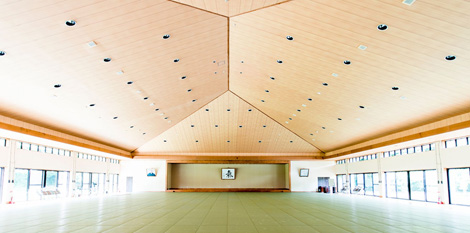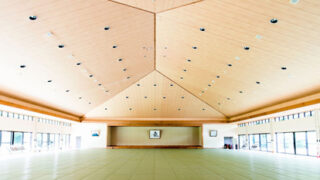It was about 20 years ago. There was a young man from Germany who came to Japan wanting to study Shinshin Toitsu Aikido intensively.
At one point during his several years of stay, he showed me the Japanese calligraphy he was learning. It was like a professional calligrapher’s with beautiful brush strokes, and in admiration, I said to him,
“I’m surprised you can do Japanese calligraphy so well as a foreigner!”
He responded, “Thank you,” and then casually added a few words.
“But there are Japanese who are good at playing the piano, aren’t there?”
Oh, I see. I couldn’t utter a single word. I had made an assumption that foreigners couldn’t do Japanese calligraphy.
We are usually not aware of our own assumptions and preconceptions.
There are various assumptions such as “because I am old,” “because I am young,” “because I am male,” “because I am female,” and so on. The same is true for assuming that “Young Japanese people who dye their hair or who have piercings are frivolous.”
Statements based on assumptions can sometimes hurt people’s feelings. I did not hurt the young man in the above case, but it was a good lesson learned.
These assumptions do influence us in many aspects of our daily lives.
One of the common assumptions is, “It seems like painful work”.
When we see someone who is making an enormous effort, we tend to feel this way. However, when we ask the person making the effort, that person often does not feel it is painful work at all.
What makes us feel this way may simply be our habit of making assumptions like, “it must be painful work”. When we actually try it ourselves [putting ourselves in the place of the other person], often times we realize [our assumptions] are not the case.
If we keep choosing not to try/do something because it looks too hard, then we will never be able to move forward.
In such cases, we can think instead, “Once started, the rest is only half.” This means that as long as we actually start doing something new and unfamiliar, it is as if we have already completed half of the process.
At first, I felt writing to be tedious. Not only did writing seem like “painful work”, but also, I thought I had to write well, so the act of writing itself was actually painful!
I found it so hard that I wondered what made it feel so painful. No matter how much I thought about it, however, I just could not find any clear reason.
When I finally arrived at the answer, it was just my assumption causing myself self-induced pain!
In my case, the process goes like this. First, I think of the audience to whom I am communicating, then I try to clarify the exact theme, and finally, I am prepared to just begin writing. No matter how much I do not like what I wrote, I do not erase it halfway. When I complete my first draft, I refine the text as many times as necessary until I am satisfied with it.
The key point is to “get started”. Once I get past that point, I realize that writing is not as hard as I thought it would be.
It was simply my baseless assumption that “it looks like painful work”, that made the writing feel so painful!
24/7 Uchideshi training under Koichi Tohei sensei was really strict and tough.
But it was never painful work. This is the important point. It is an assumption that “strict/tough/hard = painful”.
It is important to have the attitude that, “If I am going to do something, I am going to enjoy doing it.” In this way, we can let go of the habit of making assumptions that “something will be painful work”.
If we understand why we are doing something and we make a steady effort, then the strictness/toughness [of the project] will lead to joy and happiness in the end.
However, if we say “painful work = pleasure”, the meaning will change, so we need to be careful.
From an instructor’s perspective, this is all about how not to make your students feel “pain”, but at the same time, not to compromise the rigor necessary for their growth.
This is not about “forcing someone to do too much”, which is a common mistake. There is also real “painful work” that can weaken both our mind and body.
This is why it is important to observe our students’ condition carefully and guide them.
What do you find “painful work” right now?
Translated by Mayumi Case
Edited by David Shaner
Eastern Ki Federation
https://easternkifederation.org/
Original article in Japanese: 思い込み (Omoikomi)
March 1, 2024
https://shinichitohei.com/japanese/04-%e3%83%a1%e3%83%bc%e3%83%ab%e3%83%9e%e3%82%ac%e3%82%b8%e3%83%b3/29855/



